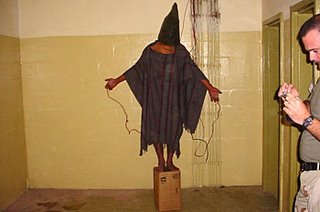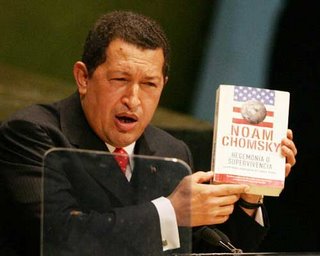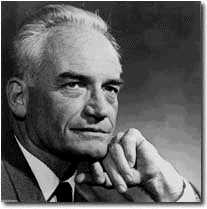
Following the attacks of September 11th it would seem clear as to who it is we needed to carry the war to – those who attacked us. Specifically, this was Al Qaeda and their state sponsors, the Taliban. NATO invaded Afghanistan with close to universal support from not only the people of the United States but countries around the world. The war was going well and then the Bush administration began to lose interest. It began to look for more enemies to confront and turned their backs on opportunities to rebuild a very important relationship with Iran. Iran had been a key ally of the United States until the overthrow of the Shah. (Following the seizure of the U.S. embassy and holding of America hostages in the late 1970’s, relations have been very chilly. Iran was sympathetic to the overthrow of the Taliban and the door was open to work together. Unfortunately, working with Iran was not what the Bush administration had in mind. We may pay a price for that decision in the months and years to come.)
Five years later, it seems that every issue in the Middle East is somehow being tied to September 11th in ways that make less and less sense. Every problem group in the entire area is assumed to be terrorist, and most recently Islamofascists, with ties to 9-11. And if the oversimplification of political movements in the Middle East isn’t bad enough then this administration’s aversion to diplomacy and over-reliance on military responses almost exclusively is creating more problems than we are going to be able to solve. If a hammer is the only tool in your toolbox then every problem begins to look like a nail.
Peter Beinart addresses the issue of the war on “terrorism” and the war on “Islamofascism”: He argues these terms are so broad and imprecise they have become almost meaningless. Success requires clarity, not vague generalities. He
writes,
… in the days after September 11, we were fighting "terrorism." But that put us
at war with Sri Lanka's Tamil Tigers and Spain's Basque separatists, both of
which blow up civilians for political gain. Terrorism, a thousand critics noted,
is not an opponent; it is a tactic. So, in his 2002 State of the Union address,
President Bush turned his attention to the "axis of evil": Iraq, Iran, and North
Korea, and their terrorist minions. Except that Iraq and North Korea didn't
really have terrorist minions, and Iran's were not those who attacked us on
September 11. Now North Korea--a diversity pick from the beginning--has fallen
off the list. And the president is suggesting that our enemy has something to do
with Islam after all. We are fighting
"Islamofascism."
"Islamofascism" has become widely popular on the right, which is ironic given that it was primarily designed to appeal to the left. When Paul Berman and Christopher Hitchens popularized the concept, they were trying to prevent their fellow leftists from investing Osama bin Laden with anti-imperialist legitimacy. To the contrary, they argued, fighting Al Qaeda was part of the left's grand anti-fascist tradition. It was a noble effort, but there were problems. At its core, fascism involves worship of the nation. Bin Laden, however, isn't an ultra-nationalist; he's an ultra anti-nationalist. He sees Middle Eastern countries as insidious, Western impositions that must be abolished so Muslims can reunite under a theocratic
caliphate.
****
The more apt epithet for bin Laden is totalitarian. Hannah Arendt, totalitarian's foremost interpreter, insisted that totalitarianism and fascism were different. Totalitarians need not deify the nation: Hitler imagined a race-based utopia and Stalin imagined a class-based one. What linked them, in the philosopher Michael Walzer's words, was their "political messianism"--their vision of a perfect new world brought about through coercive state power. The perfection of the vision mandated the scope of the coercion: It had to be total. Most dictators merely try to control political behavior--behavior that threatens their hold on power. But, in a totalitarian state, all behavior is political because everyone must do their part to create a perfect world. In fascist Italy, the church remained largely autonomous. In a totalitarian state, however, you either actively participate in the ideological
project or you are an enemy. Such a state, Arendt wrote, cannot permit "the
autonomous existence of any activity whatsoever." It cannot even allow "the
neutrality of chess."
For Al Qaeda, the utopia is religious. Bin Laden and his supporters call themselves salafis, from the word salaf, which refers to Mohammed's companions in the seventh century. And, since salafi society was perfect, recreating it requires total state control. A true Islamic state, wrote the influential salafist theoretician Maulana Maududi, must have a "sphere of activity [that] is co-extensive with human life. ...In such a state, no one can regard any field of his affairs as personal and private." Thus, the Taliban banned chess and virtually every game or hobby. Music, said the Taliban's education minister, "creates a strain in the mind and hampers study of Islam." In other words, it hinders the effort to create the pure Muslims required for a pure Islamic society.
So Islamic (or more precisely, salafi) totalitarianism is a good description of what bin Laden's followers believe. But Bush doesn't apply the term Islamofascist merely to followers of Al Qaeda; he applies it to the insurgents in Iraq and to the regime
in Iran. And, in so doing, he destroys its clarity. The average Iraqi insurgent
is not fighting to usher in a utopian vision of Islam; he is fighting because an
American soldier killed his cousin or because Shia are stealing his country.
America's enemy in Iraq includes totalitarians, but it is mostly nationalist and
tribalist.
Iran isn't really totalitarian either. Its hybrid political system is far from democratic (and has grown more oppressive in recent years) but still permits some public disagreement. Within limits, it allows people to differ about the definition of an Islamic state, something a totalitarian regime cannot allow. Iran has also proved half-hearted about regulating apolitical behavior--the kind that doesn't threaten the regime but impedes utopia. Ayatollah Khomeini refused to ban non-Islamic music, art, and, yes, chess. And, unlike the Taliban, Mahmoud Ahmadinejad has said he doesn't care how citizens cut their hair. Tehran's goal is less popular mobilization than popular indifference. …
That doesn't make Iran benign. But it does raise questions about whether the claim Arendt made about totalitarian regimes--that their messianic character made them inherently expansionist--fits Ahmadinejad's, too. A war against Islamic totalitarianism has clear boundaries: It means a struggle against violent salafis. A war against Islamofascism does not, and that is precisely the point: It lets the Bush administration add enemies--first Iraq, now Iran--while implying that they share Al Qaeda's ideology and represent the same kind of threat. That's not true, and five years after September 11, it has left Americans increasingly confused about who we are fighting, and increasingly skeptical that we can win.
You can read the
entire piece here.
 For those who dispute whether or not various methods of torture are indeed torture all I can say is it is what it is. Period. And, more importantly, it is a reflection on us. If there is such a thing as God, let’s hope it has mercy on our souls.
For those who dispute whether or not various methods of torture are indeed torture all I can say is it is what it is. Period. And, more importantly, it is a reflection on us. If there is such a thing as God, let’s hope it has mercy on our souls.






















